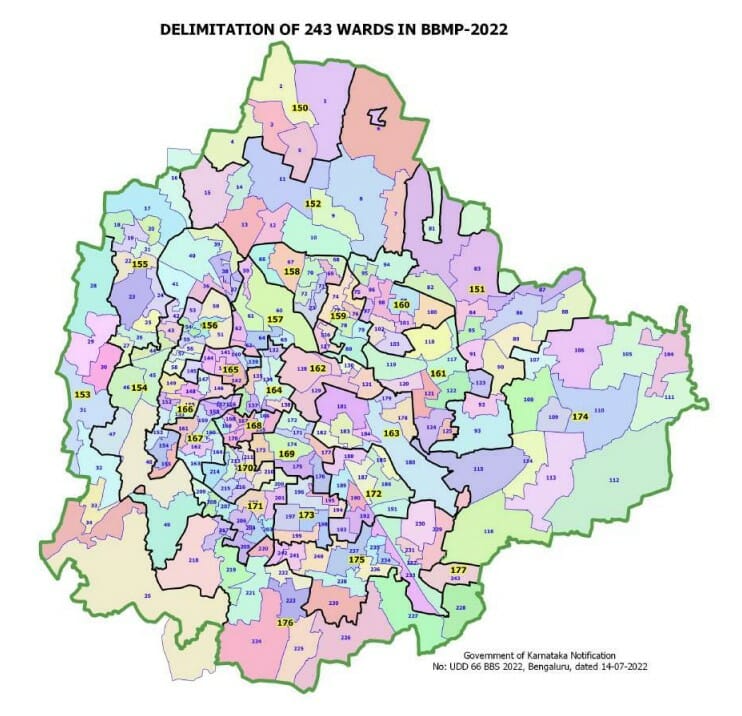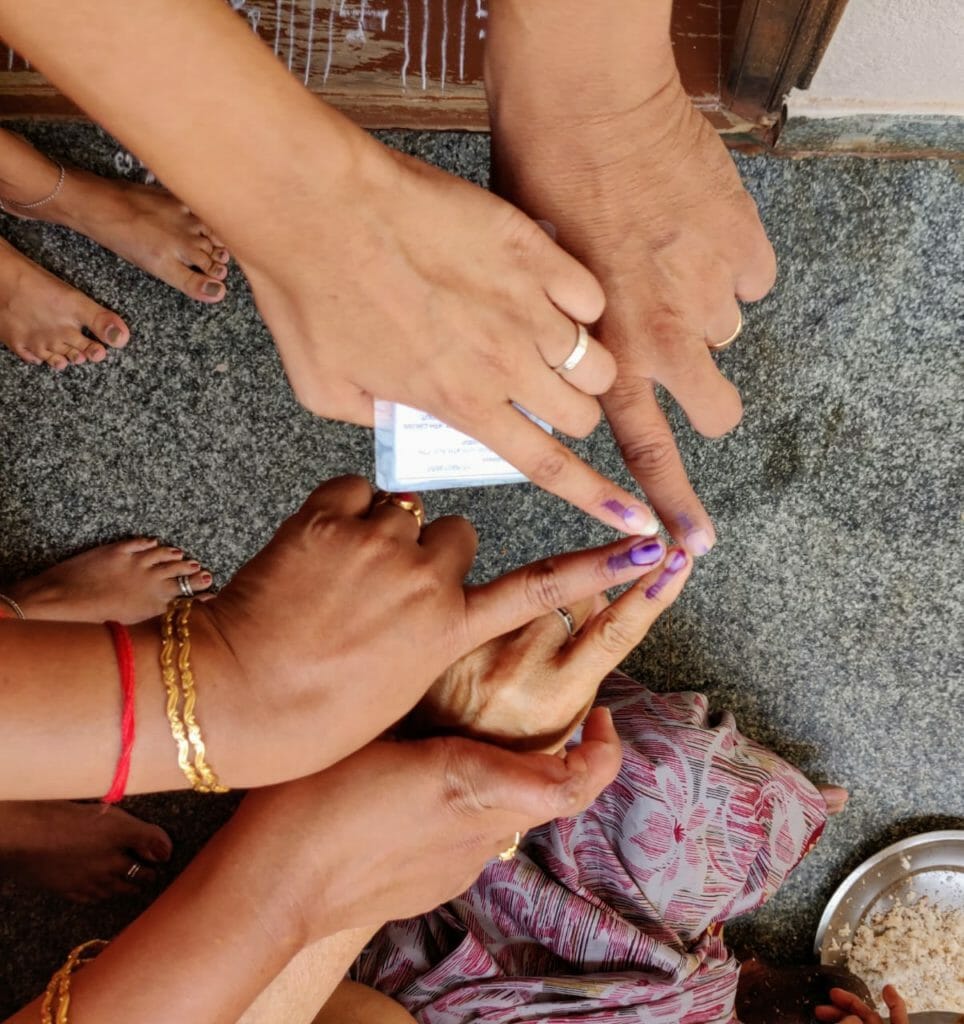It has been a little over two years since the urban local body in Bengaluru had an elected body of representatives. While cases pending in Supreme Court have been cited as a reason for the delaying the BBMP elections, the absence of elected corporators at the local level has meant that MLAs have been calling the shots even for local level initiatives.
Reports have tracked how the role of ward committees is being chipped away leading to lack of accountability and eventually translating to citizens losing whatever little say they had in matters pertaining to urban service delivery and civic governance.
As per the BBMP Act, 2020, a general election shall be held for the purpose of constitution of a new Corporation before the expiry of the duration of the existing Corporation or on dissolution. The term of the Corporators elected in 2015 came to an end in September 2020 and the pandemic became the main excuse for not holding the elections till now. Till last month, when the Karnataka High Court directed the government and the Election Commission to hold polls for the Bruhat Bengaluru Mahanagara Palike (BBMP) by December 31, 2022.
But why did it need the HC’s intervention to get the poll process rolling?
Delimitation exercise
Until July 2022, BBMP had 198 wards within its limits. However, through a gazette notification dated July 14, 2022, the Corporation revised and redrew the number and boundaries of wards under its jurisdiction to 243.
Under the chairmanship of the Commissioner, the municipal body published, in English and Kannada, the draft Ward-wise Delimitation of BBMP based on the 2011 Census which was then accepted by the state government.

However, in July this year, Citizen Matters had traced how the finalisation of the new wards was bogged down by concerns of civic groups over the whole delimitation process, as reflected in the 3,800 objections filed against it.
The main objections related to the delimitation process was its reliance on the 2011 Census and the absence of an independent commission for ward delimitation. The primary reason for this delimitation exercise was to accommodate the city’s growing population and ensure equitable representation in the municipal council. Instead of the 2011 data, civic groups had said the BBMP should instead have used the 2021-22 electoral roll issued by the Election Commissioner.
Read more: BBMP ward delimitation finalised: Over 3800 objections received, most rejected
Reservation controversy
While the delimitation process was riddled with challenges, reservation of wards for Other Backward Classes (OBCs) and women candidates has been another contentious issue. The state government was rapped by the HC for arbitrarily classifying and reserving certain wards for OBCs and women.
“The reservation for women for wards has to be done in a descending order by taking into account the larger population in each of the wards,” the court had observed.
The judgement was in response to 16 petitions that challenged the “unscientific” way the reservations for wards were done which failed to satisfy the “triple test norms” laid down by the Supreme Court in 2021. The SC order said state governments are required to fulfil certain conditions like setting up a dedicated commission to inquire “into the nature and implications of the backwardness qua local bodies”, make recommendations for reservation of seats for OBCs and ensure only 50% of seats, cumulatively, are reserved for Schedules Castes (SC), Schedules Tribes (ST) and OBCs.
Karnataka already has a state commission for backward classes that examines requests for inclusion of any class of citizens as a Backward Class in the lists, inquires claims or complaints of over-inclusion or under-inclusion and tenders appropriate advice to the government.
However, for the BBMP poll reservations, the state government set up a separate Commission as directed by the SC in May 2022 under the chairmanship of Justice K Bhaktavatsala to conduct a study on adequate political representation to backward classes. The commission, in July, recommended continuing with the existing 33% reservation for OBCs in urban and rural local bodies.
Now the High Court has ordered that the government take a final decision on the reservation issue by November 31st. “They have to redo the reservations by November 31st, and we have been directed to hold the elections within a month from it,” says Lakshmi Venkatesh, section Officer at the state Election Commission. “After the reservation process, we will issue a calendar of events for the elections which will be notified by the BBMP Chief Commissioner and post which candidates will be nominated”.

Voter’s list made public
The municipal body has published the final electoral roll–ward-wise voters’ list in English and Kannada. Citizens can access this list and search through the electoral roll by entering their Voter Photo Identification Card ID. Voters can also view details as per the district, assembly or ward they belong to.
According to the BBMP, there are 79,19,563 registered voters on the list, with male voters making up 41.14 lakh voters, women 38.03 lakh and others 1,433 voters respectively. The total number of voters within the BBMP limits is almost 6 lakh higher compared to the 2015 polls, as per government data.The share of male voters too is higher than women as compared to the previous elections.